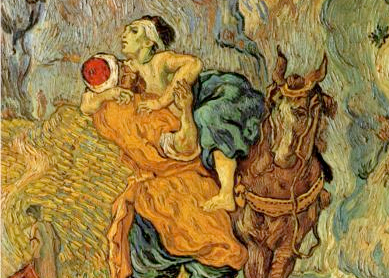Q. How do Lutherans define parables?
A. Lutherans do not use the word parable in any distinctive manner that differs from the norm. In general, the word parable refers to a short saying or story that makes a particular point in a memorable fashion. Parables often rely on symbolism, metaphor, irony, or some sort of double meaning to make their point. Sometimes they simply illustrate a truth that might be widely accepted but, more often, they provoke reflection in a way that runs counter to conventional wisdom. Parables are most often associated with Jewish teaching, particularly that of the Second Temple period. Jesus of Nazareth is the best-known teller of parables, though some parables are also found in the Hebrew Bible and in rabbinic writings. Some scholars try to define the genre of “parable” in specific terms that would distinguish parables from fables or other types of symbolic stories, but at a popular level (and in the Bible) the word is used without technical precision.
When a modern-day teacher or pastor (Lutheran or otherwise) uses the word “parable” he or she is probably referring to one of the forty parables of Jesus found in the Synoptic Gospels (Matthew, Mark, and Luke). Of course generically, a parable can be any story that has symbolic meaning or that conveys a moral message.
The word “parable” can also refer to a story that the speaker or writer thinks should be understood figuratively rather than literally. New Testament scholar Marcus Borg (a former Lutheran, now an Episcopalian) likes to refer to miracle stories in the Gospels as “parables about Jesus” because he thinks they are symbolic accounts rather than descriptions of actual historical events. But this is not the usual meaning of the word parable; most of the time when scholars or others who use the word, they are referring to the short sayings or stories employed by Jesus and other Jewish teachers to make particular points in a way that would be memorable and meaningful.
The Harper-Collins Bible Dictionary offers a descriptive summary of what scholars think about parables, with a chart listing all the parables of Jesus (pp. 736-739) The condensed Bible Dictionary (on this site) has a shorter list.





